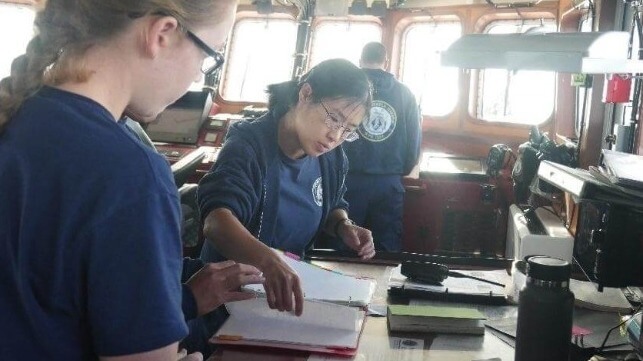As China Looks to South Pacific, USCG Maintains an American Presence

The U.S. Coast Guard is operating forward in the Pacific Islands for the purpose of maintaining an American presence and building law-enforcement partnerships with regional governments. With capable Coast Guard cutter crews in the area, U.S. government personnel are becoming a familiar sight in the EEZs of under-resourced Pacific island nations.
The value of the Coast Guard's new forward role was on full display this past week. As Chinese Foreign Minister Wang Yi traveled to the Solomon Islands to launch a regional diplomatic tour, showing China's growing influence in the Pacific, there was a small but symbolic American presence nearby: the cutter Myrtle Hazard was headed from Pohnpei to the Solomons' northern EEZ to help out the local government.
The Hazard visited the Solomon Islands to help patrol their exclusive economic zone while the Royal Solomon Islands Police Vessel Taro was undergoing maintenance. The objective was to maintain maritime surveillance to deter illegal, unreported, and unregulated (IUU) fishing in the northern Solomon Islands.
“Through Operation Blue Pacific, the United States Coast Guard looks for opportunities to assist our regional partners with maritime governance and security,” said Capt. Craig O’Brien, chief of response of Coast Guard District 14. “Working closely with the Forum Fisheries Agency and the government of Solomon Islands, it was a privilege for the United States Coast Guard to assist the Solomon Islands while their police vessel was down for maintenance.”
According to the Coast Guard, IUU fishing is now the leading global maritime security threat and could jeopardize the efforts of Pacific Island nations to conserve fish stocks, an important resource in the region. IUU tuna fishing has been a problem in the region for years, and China happens to have the world's largest distant-water fishing fleet and the world's worst ranking for IUU fishing.
“Maintaining maritime governance in Oceania with our partners is essential in ensuring a free and open Indo-Pacific,” said O’Brien. “It is through this collaborative effort and our ability to join forces that we are able to support regional economic prosperity and individual sovereignty.”
